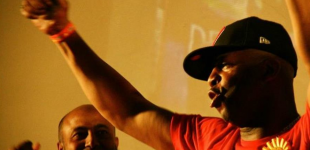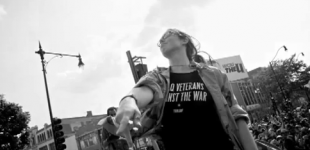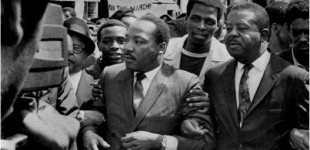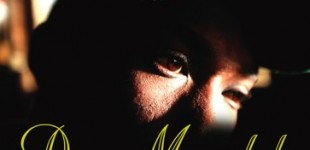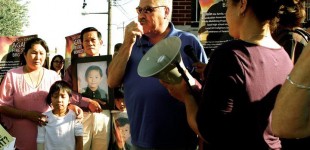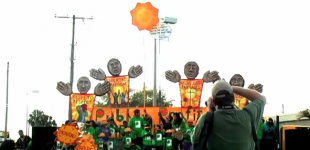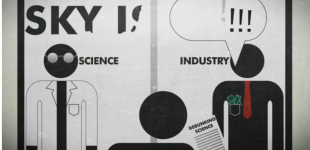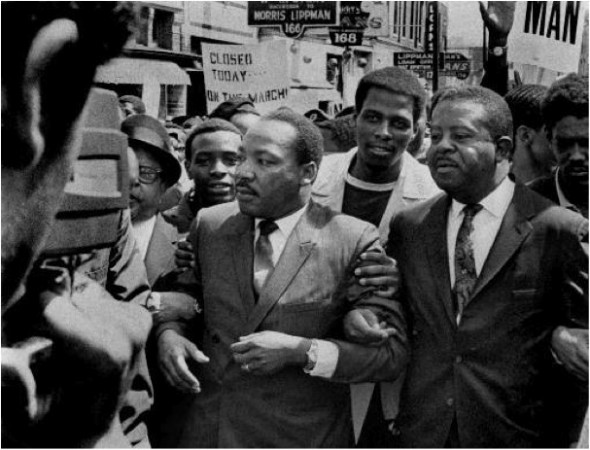Media Arts Building a U.S. Human Rights Movement
Video
MLK Jr’s Legacy: From Civil Rights to Human Rights
In celebration of Martin Luther King Jr. Day, we’d like to call attention to oft-overshadowed, but crucial and galvanizing elements of his legacy. In the final years of MLK Jr’s life, his thinking and teaching took on a more radical tenor. He issued a clarion call for poor communities to unite forces to radically transform society: one suffering from fundamentally rotten structures culpable for staggering inequities in economic and political power. In doing so, he also exhorted people to put their collective weight behind securing not only civil rights, but human rights: winning the right to eat at public restaurants would not serve as a cure for the many who could not provide for their families’ basic human needs. This trajectory materialized in the Poor People’s Campaign, which organized a “multiracial army of the poor” to win a poor people’s bill of rights. Below, we offer some resources encapsulating this period of MLK Jr’s work—one of the many historical inspirations that catalyze us today.
“We have moved from the era of civil rights to the era of human rights, an era where we are called upon to raise certain basic questions about the whole society. We have been in a reform movement… But after Selma and the voting rights bill, we moved into a new era, which must be the era of revolution. We must recognize that we can’t solve our problem now until there is a radical redistribution of economic and political power… this means a revolution of values and other things. We must see now that the evils of racism, economic exploitation and militarism are all tied together… you can’t really get rid of one without getting rid of the others… the whole structure of American life must be changed. America is a hypocritical nation and [we] must put [our] own house in order.”
— Report to SCLC Staff, (May 1967)
“The dispossessed of this nation — the poor, both white and Negro — live in a cruelly unjust society. They must organize a revolution against the injustice, not against the lives of the persons who are their fellow citizens, but against the structures through which the society is refusing to take means which have been called for, and which are at hand, to lift the load of poverty. There are millions of poor people in this country who have very little, or even nothing, to lose. If they can be helped to take action together, they will do so with a freedom and a power that will be a new and unsettling force in our complacent national life…”
—The Trumpet of Conscience (1967)
Text and audio for King’s first public antiwar speech, “Beyond Vietnam”
The Martin Luther King You Don’t See on TV
The following resources come from Poverty Initiative, which works to finish the Poor People’s Campaign’s unfinished business of uniting the poor across color lines to build a powerful movement to end poverty.
“Preparing for the Poor People’s March”
“Life, Liberty, and the Pursuit of Happiness”
